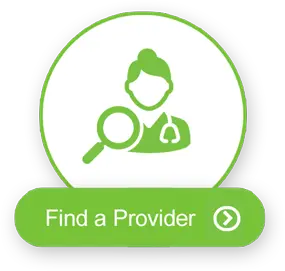
According to an article in the Huffington Post, a “depression nap” is a way for those suffering from depression to avoid their feelings and use sleep as a coping mechanism. Some say their “naps” can last as long as 4 or 6 hours a day.
Is this a healthy choice to make? No, according to Adriane Soehner, an assistant professor of psychiatry at the University of Pittsburgh:
Accordingly, if you are suffering from depression, here are four suggestions to help fight depression without resorting to “depression naps.”
Somewhat ironically, it starts with getting the right kind of sleep.
- Get some zzzz’s. Sleeping problems can impact the severity and how often you experience depression symptoms. According to the Mayo Clinic, adults need 7-9 hours of quality sleep a night.
That doesn’t mean that you should never take a nap. If you are sleep deprived or had poor sleep the night before, a refreshing nap may help improve your mood, alertness, and ability to focus. According to the National Sleep Foundation, a 20-30-minute nap “provides significant benefit for improved alertness and performance without leaving you feeling groggy or interfering with nighttime sleep.”
Nighttime sleep may be elusive, but it’s important to your mental health. If depression symptoms – like nervousness, worsening sadness, and negative feelings – keep you from falling or staying asleep, discuss it with your doctor. You may need help sleeping, which could mean a sleep study, or a referral to a specialist. - Sweat it out. Exercise might be the recommendation you’ve heard the most. But there’s a good reason for that: studies show that regular exercise reduces depression, negative moods, and anxiety, while improving cognitive functioning and self-esteem. And it’s not just the immediate release of endorphins (or the “runner’s high”). The real benefits are longer term. According to the Harvard Health Letter, “the real value is in low-intensity exercise sustained over time. That exercise spurs the release of proteins called neurotrophic or growth factors, which cause nerve cells to grow and make new connections. The improvement in brain function makes you feel better.”
The World Health Organization recommends you get 150 minutes of moderate activity, or 75 minutes of vigorous activity per week. If running isn’t for you, yoga, weight lifting, exercise classes, and walking are great choices and helpful for reducing stress and depression. Check with your doctor before starting any exercise program.
- You are what you eat. Going hand-in-hand with exercise is good nutrition. According to Psychology Today, a recent randomized control trial – called the ‘SMILES’ trial – “demonstrates for the first time that people with moderate to severe depression can improve their mood by eating a healthier diet.” The trial used a modified version of the Mediterranean diet, which included:
- Encouraged foods: whole grains, fruits, vegetables, legumes, low-fat/unsweetened dairy, raw unsalted nuts, lean red meat, chicken, fish, eggs, and olive oil
- Discouraged foods: sweets, refined cereals, fried food, fast food, processed meat
- Beverages: maximum two sugar-sweetened beverages per week and maximum two alcoholic drinks per day, preferably red wine
While it is unclear exactly why this diet helped lessen depression symptoms (32 percent of participants entered remission after the trial), Psychology Today concluded the diet’s low amount of refined carbohydrates and processed oil, as well as the inclusion of whole foods, natural fat/cholesterol and animal sources of protein could be the key.
- Try something new. There are a number of alternative therapies to alleviate depression symptoms such as acupuncture and meditation. In traditional Chinese medicine, acupuncture is the process of inserting needles into the skin in places of the body thought to correspond to specific organs. According to Scientific American, it is believed “to improve functioning by correcting energy blocks or imbalances in the organs.” While studies are still being conducted, acupuncture may help some patients curb negative side effects, according to the publication. Mindfulness and meditation are gaining a lot of attention on their influence on mood and alleviating depression symptoms. According to the American Psychological Association, meditation can relax the mind and body by creating a psychological shift. If you aren’t sure how to start, there are many mobile phone apps that guide you on your path.A new trend in mindfulness is called sophrology. According to BeSophro, sophrology is a “self-development practice based on easy-to-do relaxation, breathing, gentle movement, meditation and visualisation exercises to help you balance mind and body and feel empowered in the modern world.” It consists of a series of easy-to-do physical and mental exercises that, when practiced regularly, lead to a healthy, relaxed body and a calm, alert mind.”Niamh Lyons, founder of American Sophrology, told NBC News: the practice leads to “immediate inner calm, mood lifting and a sense of deep relaxation” leading to “increased concentration, motivation, self-esteem and better sleep.”
Fighting Depression
Depression can feel like a powerful beast to overcome, but there are simple ways to help manage your symptoms that can be incorporated into your daily life. Talking with your doctor is a great first step!
Interested in this topic? Please read more here: https://genesight.com/blog/patient/recovery-to-remission-understanding-common-terms-to-diagnose-depression/
Our articles are for informational purposes only and are reviewed by our Medical Information team, which includes PharmDs, MDs, and PhDs. Do not make any changes to your current medications or dosing without consulting your healthcare provider.
The GeneSight test must be ordered by and used only in consultation with a healthcare provider who can prescribe medications. As with all genetic tests, the GeneSight test results have limitations and do not constitute medical advice. The test results are designed to be just one part of a larger, complete patient assessment, which would include proper diagnosis and consideration of your medical history, other medications you may be taking, your family history, and other factors.
If you are a healthcare provider and interested in learning more about the GeneSight test, please contact us at 855.891.9415. If you are a patient, please talk with your doctor to see if the GeneSight test may be helpful.






